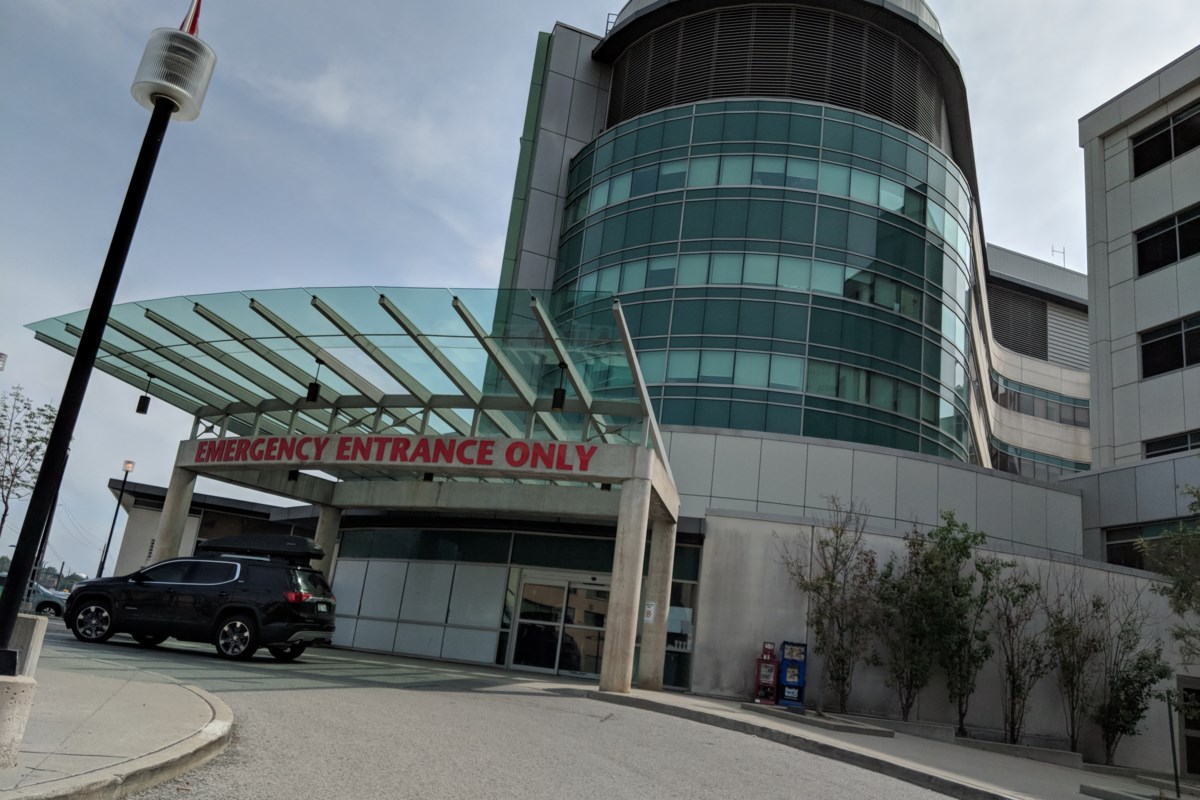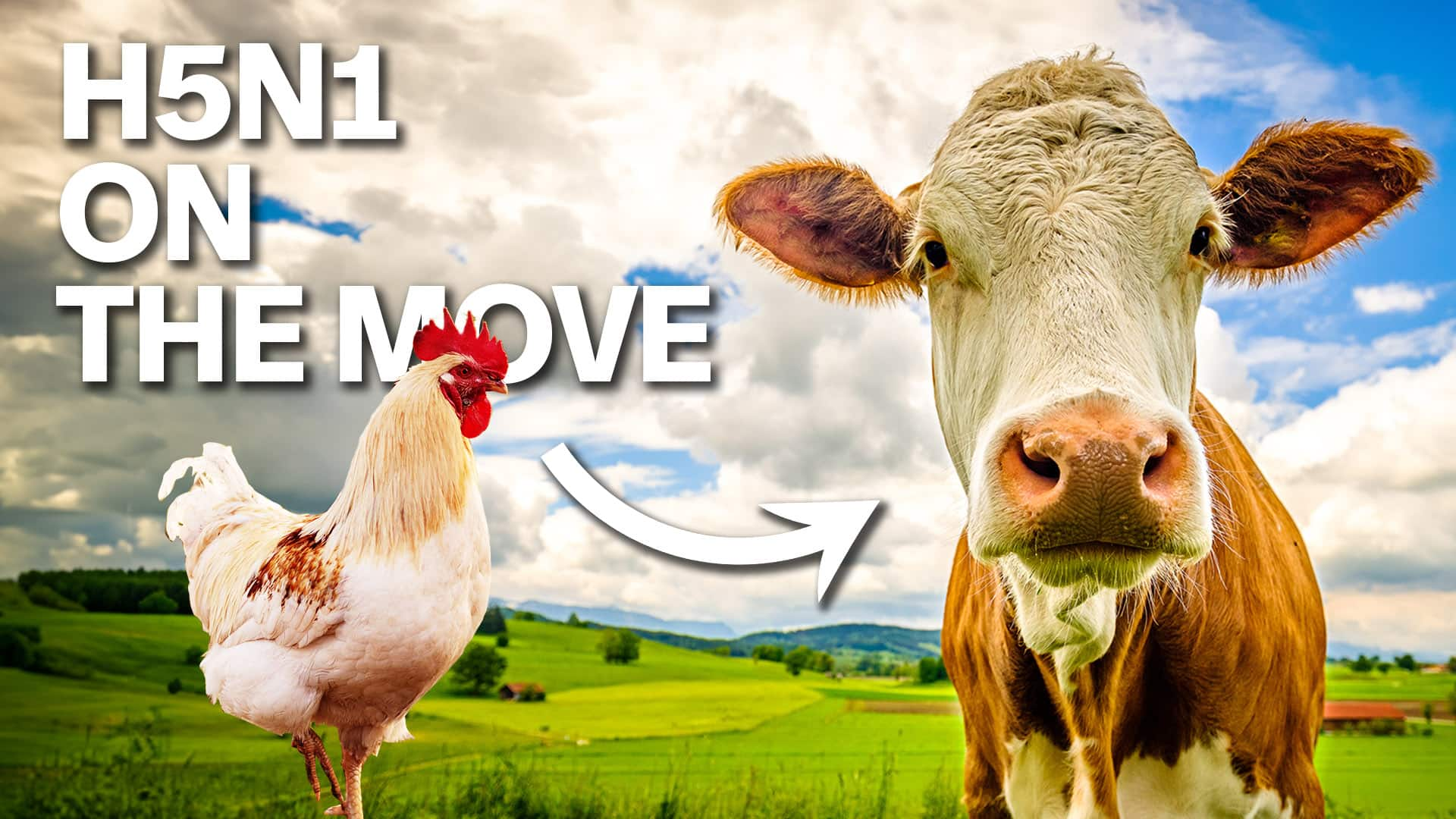Health
Alberta records 1,608 COVID-19 cases Sunday, 9 seniors die including 5 at Edmonton care centre – Global News
Alberta announced another 1,608 cases of COVID-19 Sunday and reported nine deaths, all of whom were seniors.
There are now 15,692 active cases in the province, mainly in the two largest metro centres, with 7,230 or 46 per cent of active cases in Edmonton zone and 5,756 or 36 per cent of all active cases in Calgary zone.
Sunday’s nine reported deaths bring the provincial fatality total to 533.
Five of the nine seniors who died were at the Edmonton Chinatown Care Centre.
The Edmonton Chinatown Care Centre was added to the provincial outbreak list on Oct. 20. The last public update the centre gave was on Saturday, when it said 32 residents were positive with COVID-19. There are also 36 staff members at the centre with active COVID-19 cases.
Those connected to the centre who died were two women — one in her 80s who died on Nov. 25 and another in her 90s who died on Nov. 27 — as well as three men, one in his 70s who died on Nov. 26, one in his 80s who passed away Nov. 25, and one in his 90s who died Nov. 27. All five had comorbidities — underlying health conditions that may have contributed to their death — according to Alberta Health.
There were four other deaths reported in the province: a man in his 80s linked to the outbreak at Clifton Manor in Calgary zone on Nov, 29, with unknown comorbidities. A man in his 90s in South zone, believed to have comorbidities but not connected to any care centres, died on Nov. 28. A man in his 80s with no known comorbidities and linked to the Laurel Heights Retirement Residence outbreak in Edmonton zone died on Nov. 28.
A man in his 90s linked to the outbreak at Westlock Continuing Care Centre in North zone passed away Nov. 27. It is not known if he had any comorbidities.
There are now 435 Albertans in hospital, 95 of whom are in intensive care.
The province said it tested 23,282 Albertans for COVID-19 on Saturday.
Jason Kenney said in an interview on The Roy Green show Sunday that he continues to hope Albertans recognize the seriousness of the situation and follow new restrictions.
“We are concerned about the recent spike in COVID-19 in Alberta,” Kenney said.
“And that’s why we felt — in order to avoid a situation where we have to engage in widespread cancellation of surgeries and non-urgent hospital care, in order to ensure we have capacity with our health-care front line personnel — we’ve had to bring in more stringent measures. Strong, but we think balanced.”

He added the “main thing” for Albertans to be careful with is in-person socializing.
“When you’re at home, people let down their guard, people aren’t wearing a mask in their living room, they’re not frequently sanitizing, they’re not sitting two metres apart,” Kenney said.
“It’s family gatherings, hugging… those at-home social activities are the highest vector of transmission.”
Kenney also stressed this weekend that when the province starts to receive COVID-19 vaccinations there will be no rule that makes them mandatory in Alberta.
The province is currently expected to receive about 680,000 doses of COVID-19 vaccine early in the new year. Kenney said Sunday officials are already working on the roll-out plan.
“We would be starting with the most vulnerable such as seniors in nursing homes as well as health-care workers,” Kenney said.
Many students in province shifting to online learning Monday
Alberta students in Grades 7-12 will shift to online leaning on Monday as part of the province’s attempt to limit the spread of the virus among older students.
Parents preparing for the change have mixed reactions to having their kids learn online for the second time this year.
Ibrahim Cobanoglu was out shopping for laptops for his two sons so that they have more reliable technology now compared to their first round of distance learning.
“If they like to study it, it’ll be okay for them,” said Cobanoglu. “If they don’t like to study, [online learning] is a problem but I think it’s okay for them because of COVID-19.”
On the other hand, parents like Karen Beckford are upset at the change, and believe the messaging from the province is unclear.
“I think it’s hard for the kids. I don’t understand why I can go to a shopping mall with thousands of people, but my son can’t go to school with 300 kids in his high school.”

Christopher Usih, the chief superintendent for the Calgary Board of Education said teachers have been already doing both online and in-person learning due to the number of students having to isolate.
“Our staff and our teachers have been certainly maintaining that [online] presence,” Usih said. “For us, it’s a pivot and this time around is less challenging as it was when we did this in the spring.”
Students in Kindergarten to Grade 6, and early childhood learning, will begin online learning on Dec. 18 until their winter break begins.
Diploma exams were also made optional for the rest of the school year, meaning students can choose to write them, or be exempt from the April, June and August 2021 examinations.
–With files from Michael King, Global News
Health
New technology to advance women’s cancer care at Southlake

|
|
NEWS RELEASE
SOUTHLAKE REGIONAL HEALTH CENTRE
**************************
This Cancer Awareness Month, Southlake is adding advanced technologies to detect and treat breast cancer and other women’s cancers thanks to generous community donor support, most recently through the HERE is Where Cancer Meets its Match campaign. New cancer care technology, including new mammography machines, the MyoSure System and the MOLLI 2® System will make a measurable impact in diagnosing and treating women’s cancers in the communities Southlake serves.
Southlake is installing three new mammography machines to expand its breast cancer screening program to 1,500 more women each year. Two of these machines have new biopsy capabilities that will reduce the number of cancelled exams due to equipment failure, ensuring timely care for women. Women ages 40 to 49 years old will be able to self-refer for publicly funded mammograms through the Ontario Breast Screening Program starting this fall.
“Early detection is critical when treating breast cancer and other women’s cancers,” said Lorrie Reynolds, Director, Regional Cancer Program at Southlake. “We treat more than 1,700 breast cancer patients at Southlake every year. By adding advanced technology, like the new mammography machines, we’re ensuring women have the best experience at Southlake.”
Southlake is also introducing the MyoSure System, an innovative technology that can help detect female reproductive cancers. Damaged tissue in a woman’s uterus such as fibroids and polyps can now be removed in a precise, minimally invasive procedure that leaves the rest of the uterus intact. This will improve the overall patient experience by supporting faster recovery, reducing the risk of infection and giving more women the option to have children. An estimated 200 women per year will benefit from the MyoSure System.
The new mammography machines and the MyoSure System build on Southlake’s recent investment in the MOLLI 2® System, a made-in-Canada wire-free breast localization technology. This technology is considerably less invasive and more accurate when compared to wire-guided localization, resulting in a better patient experience and improved cosmetic outcomes. More than 200 women each year will benefit from this innovative medical device as they are treated for breast cancer at Southlake.
“As a clinician caring for women with cancer in our community, I’m incredibly proud of the work Southlake is doing to advance women’s health and improve patient experiences,” said Sara Temple, MD, Surgical Oncologist and Chief of Surgery at Southlake. “Women who visit Southlake can be confident that they are receiving leading edge care, close to home when they need it most.”
The World Health Organization anticipates a 77 per cent increase in cancer diagnoses by 2050. Southlake serves some of the fastest growing communities in Canada and anticipates that the number of patients requiring cancer care will grow. By investing in new technology, Southlake is ensuring that women in the communities it serves have access to leading edge cancer care. All of these investments were funded with support from community donors who generously gave to Southlake to support investments into women’s health at the hospital.
“The generosity of our donor community and the impact they have made for women receiving cancer diagnosis and treatment at Southlake is something we can all take great pride in,” said Jennifer Ritter, President and CEO of Southlake Foundation. “From our Women’s Health Initiative donors supporting new mammography machines, to the Ladies in Philanthropy for Southlake funding the MOLLI 2 System, to our long-standing partners The Edge Benefits and Pheasant Run Golf Club enabling the introduction of MyoSure System through their joint annual charity golf tournament, we are incredibly lucky to share a vision of access to exceptional care for everyone who depends on Southlake when they need us most. Thank you, to every donor who contributed to these important upgrades to care for women.”
Southlake Foundation’s HERE is Where Cancer Meets its Match campaign supports the Stronach Regional Cancer Centre at Southlake. For more information or to make a donation, visit: southlake.ca/HERE.





Health
Pasteurized milk includes remnants of H5N1 bird flu, U.S. officials say


|
|
The U.S. Food and Drug Administration says that samples of pasteurized milk have tested positive for remnants of the bird flu virus that has infected dairy cows.
The agency stressed that the material is inactivated and that the findings “do not represent actual virus that may be a risk to consumers.” Officials added that they’re continuing to study the issue.
“To date, we have seen nothing that would change our assessment that the commercial milk supply is safe,” the FDA said in a statement on Tuesday.
The announcement comes nearly a month after an avian influenza virus that has sickened millions of wild and commercial birds in recent years was detected in dairy cows in at least eight states. The Agriculture Department (USDA) says 33 herds have been affected to date.
FDA officials didn’t indicate how many samples they tested or where they were obtained. The agency has been evaluating milk during processing and from grocery stores, officials said. Results of additional tests are expected in “the next few days to weeks.”
WATCH | Bird flu spread in U.S. cows:
For the first time ever, avian influenza, or H5N1 bird flu, was detected in roughly a dozen dairy cow herds across the U.S. About That producer Lauren Bird explores why scientists and public health officials are concerned about the cross-species transmission and whether humans are now at higher risk.
The polymerase chain reaction (PCR) lab test the FDA used would have detected viral genetic material even after live virus was killed by pasteurization, or heat treatment, said Lee-Ann Jaykus, an emeritus food microbiologist and virologist at North Carolina State University
“There is no evidence to date that this is infectious virus, and the FDA is following up on that,” Jaykus said.
Officials with the FDA and the USDA had previously said milk from affected cattle did not enter the commercial supply. Milk from sick animals is supposed to be diverted and destroyed. Federal regulations require milk that enters interstate commerce to be pasteurized.
Tests for viable virus underway, agency says
Because the detection of the bird flu virus known as Type A H5N1 in dairy cattle is new and the situation is evolving, no studies on the effects of pasteurization on the virus have been completed, FDA officials said. But past research shows that pasteurization is “very likely” to inactivate heat-sensitive viruses like H5N1, the agency added.
The agency said it has been evaluating milk from affected animals, in the processing system and on the shelves. It said it is completing a large, representative national sample to understand the extent of the findings.
Matt Herrick, a spokesperson for the International Dairy Foods Association, said that time and temperature regulations for pasteurization ensure that the commercial U.S. milk supply is safe. Remnants of the virus “have zero impact on human health,” he wrote in an email.
Scientists confirmed the H5N1 virus in dairy cows in March after weeks of reports that cows in Texas were suffering from a mysterious malady. The cows were lethargic and saw a dramatic reduction in milk production. Although the H5N1 virus is lethal to commercial poultry, most infected cattle seem to recover within two weeks, experts said.
To date, two people in the U.S. have been infected with bird flu. A Texas dairy worker who was in close contact with an infected cow recently developed a mild eye infection and has recovered. In 2022, a prison inmate in a work program caught it while killing infected birds at a Colorado poultry farm. His only symptom was fatigue, and he recovered.





Health
Remnants of bird flu virus found in pasteurized milk, FDA says


|
|
The U.S. Food and Drug Administration said Tuesday that samples of pasteurized milk had tested positive for remnants of the bird flu virus that has infected dairy cows.
The agency stressed that the material is inactivated and that the findings “do not represent actual virus that may be a risk to consumers.” Officials added that they’re continuing to study the issue.





-



 Health18 hours ago
Health18 hours agoRemnants of bird flu virus found in pasteurized milk, FDA says
-
Art24 hours ago
Mayor's youth advisory council seeks submissions for art gala – SooToday
-



 Health22 hours ago
Health22 hours agoBird flu virus found in grocery milk as officials say supply still safe
-
Art18 hours ago
Random: We’re In Awe of Metaphor: ReFantazio’s Box Art
-



 Investment22 hours ago
Investment22 hours agoTaxes should not wag the tail of the investment dog, but that’s what Trudeau wants
-
News14 hours ago
Amid concerns over ‘collateral damage’ Trudeau, Freeland defend capital gains tax change
-
News23 hours ago
Peel police chief met Sri Lankan officer a court says ‘participated’ in torture – Global News
-
Art23 hours ago
An exhibition with a cause: Montreal's 'Art by the Water' celebrates 15 years – CityNews Montreal





